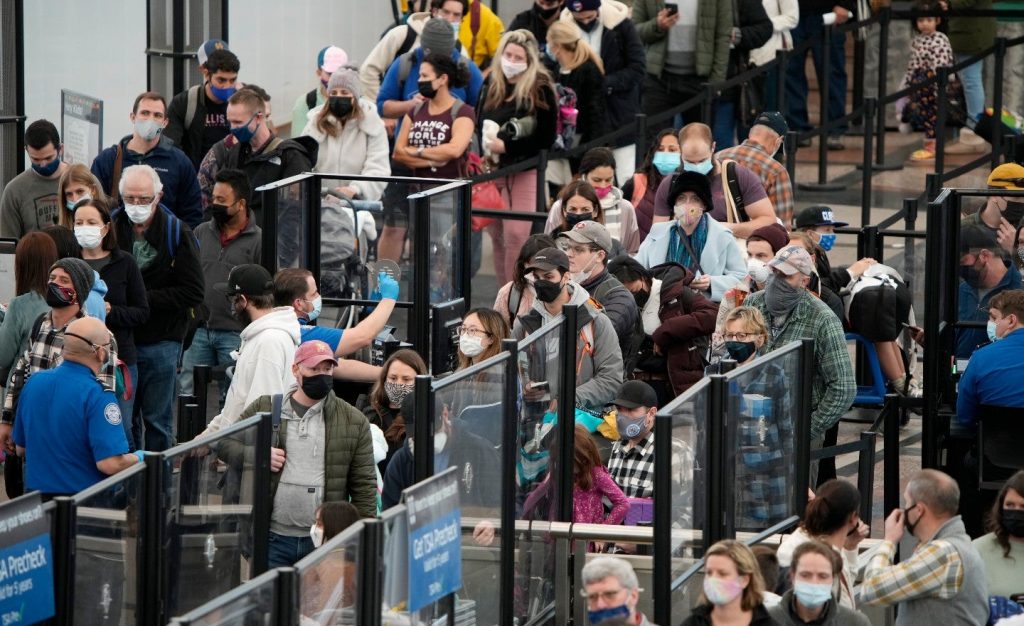
Air travel has gone through a roller coaster ride during the COVID-19 pandemic. After the “stay at home” orders implemented starting in March 2020, air travel hit a low point on April 13, 2020, when just 87,534 people were screened at airport security checkpoints. Since that point, air travel has rebounded, with January and February 2022 volume at more than 80 percent of the same months in 2019. The 2022 volume to date is also double what occurred in 2021.
With the omicron surge now in full retreat, the spring and summer travel season is poised to return to or even surpass pre-pandemic levels. What can air travelers expect over the next several months as they plan their air travel excursions?
More TSA PreCheck passengers: Travelers learned over the past two years that having Transportation Security Administration (TSA) PreCheck makes getting through airport security checkpoints faster and safer. More people will be willing to pay for the privilege, requiring the TSA to pivot and transition more security checkpoint lanes for PreCheck vetted passengers. Given that PreCheck makes security checkpoints more efficient and the air system more secure, legislation is long overdue to make PreCheck available at no cost to anyone who is willing to undergo the associated background screening. Such an investment will pay dividends for all travelers.
Higher airfares: Airfares have been historically low during the pandemic, driven largely by lower demand. The airlines have responded by adjusting capacity, giving travelers fewer seats and fewer schedule choices. Airlines have also been squeezed by rising jet fuel prices, which has put enormous pressure on their bottom line and further threatens reduced schedules, focusing on their most profitable routes. As demand surges, airlines will capitalize and begin to increase air fares. Fuel surcharges will also be used to gain revenue. The return of fees for changing tickets later in the year will also add to their revenue, as will increases in baggage fees and preferred seats. The only limitation will be competitive pressures, although eventually, every airline will need to adapt to a changed economic environment.
Business travelers and airline elite status: With virtual meetings replacing in-person meetings, business travelers have been stuck at home during the pandemic. As more companies relax travel restrictions, business travelers are set to fill airplanes with high-revenue tickets. Over the past several years, airlines have revised their frequent-flyer programs such that elite status is gained not by how far you fly or how many segments you take, but by how much your ticket costs and how much you spend on their affiliated credit cards. This creates incentives for travelers who covet high, elite status to pay more for their tickets. Over the past two years, airlines have provided backdoor incentives for gaining elite status. That will end or be scaled back in 2022, which means that for business travelers to keep their place at the front of the elite status line, they will need to pay up.
Mask mandate: The federal face mask mandate for air travel is set to expire on March 18, 2022. Given the recent new CDC guidelines on face masks, the federal mandate will indeed expire. The question is when. It is reasonable to expect it to be extended for a very short period, like one or two months, giving the airlines and travelers the opportunity to adapt. Unless some new variant surfaces and begins a rapid spread across the nation, the federal mask mandate will become history. Of course, many people will continue to wear face masks at airports and on airplanes, for the risk-reduction benefits that they offer. However, no one will be required to do so, although some airlines may still ask their flight attendants to continue wearing them.
Will air travel ever return to pre-pandemic levels? In volume of travelers, certainly. However, the pandemic has permanently changed how people view infectious diseases and public health risk. As such, many will continue to remain cautious, wearing face masks or forgoing air travel altogether.
The ramp-up period for air travel has begun. Airlines will need to revamp their schedules and staffing to accommodate the next surge in demand. What remains is to see is how travelers adapt to the new environment, and how airlines transition to a seller’s market for air travel, something that they have not had for more than two years.
Sheldon H. Jacobson, Ph.D., is a founder professor of Computer Science at the University of Illinois at Urbana-Champaign. He applies his expertise in data-driven risk-based decision-making to evaluate and inform public policy. He has researched aviation security systems since 1995. His research provided the technical foundations for TSA PreCheck.
